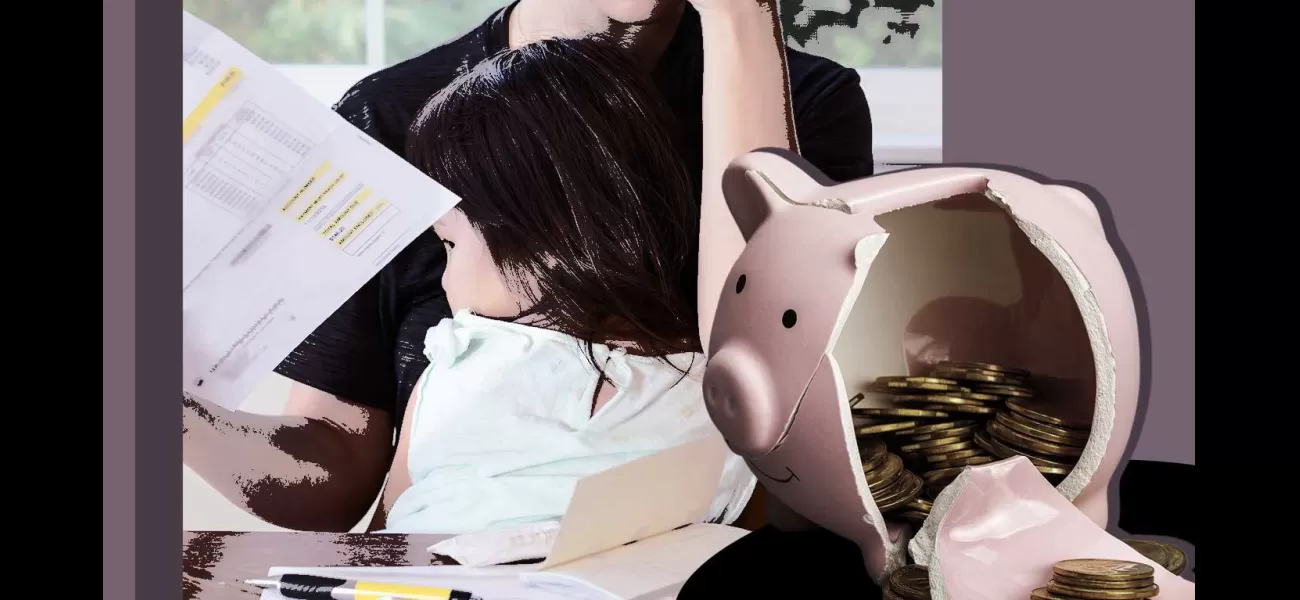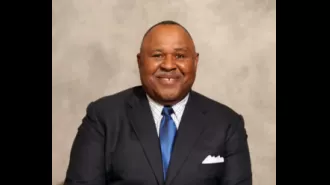A single mother shares her cautionary tale about accessing superannuation funds.
Rachael regrets using up her superannuation fund when her children were young.
May 16th 2024.

Rachael, a single mother of three, made the difficult decision to leave her husband over 20 years ago. At the time, she had two young children and was pregnant with her third. She recalls, "I was renting and we moved with nothing." Rachael, who prefers to keep her surname private, shared with 9news.com.au that she had no job or savings, and her only real asset was $30,000 in her superannuation fund.
In a desperate situation, Rachael applied to her superannuation company to withdraw the maximum amount allowed under a financial hardship provision - $10,000. She explains, "It was used for buying a fridge and furniture and everything we needed." To qualify for this provision, a person must have been on Centrelink unemployment benefits for 26 consecutive weeks or more. The withdrawn money is taxed at 25%, but those with incomes in the tax-free threshold can receive the tax back after filing their tax return.
Rachael admits that she felt she had no other choice but to make that first withdrawal from her superannuation. However, her circumstances were different for the second and third time she applied for funds to be released. She explains, "I still felt it was important at the time." When her two youngest children were in high school, Rachael withdrew $10,000 for each of them so they could go on a school trip to Japan. These applications were made two years apart, when the children were both 16 years old. Rachael shares, "They were learning Japanese and I wanted to give them a good education. I took it out so they could go to Japan." However, she adds, "None of them are interested in Japanese now and they couldn't give a shit."
Unfortunately, these withdrawals left Rachael with no money left in her superannuation fund. She now regrets her decisions, saying, "It was the worst thing I did. I wish I hadn't, as I am now facing medical problems and housing problems and have nothing to fall back on." Rachael, who is now 51, made the last withdrawal from her super about seven years ago. If she had kept the entire $30,000 in her superannuation account, it would have more than tripled to $109,800 by the time she was 67, assuming a compound interest rate of 5%.
Rachael wants to warn others about the consequences of accessing their superannuation early. She shares, "I tell everyone I know, 'Don't take it out because you will need it when you are old.'" While there are checks in place to ensure that people have been receiving Centrelink benefits for the required amount of time, there is little scrutiny on how the money is spent. Rachael believes that some people may see it as "quick cash" and use it to buy unnecessary items. She says, "I think some people on Centrelink think it's quick cash and they can go buy a new TV."
According to figures from the Australian Prudential Regulation Authority, 77,000 accounts were granted early access to superannuation funds due to hardship in the last financial year. This number has remained steady due to low unemployment rates. However, statistics from the Australian Tax Office show a growing number of people accessing their super early for compassionate reasons. These reasons include medical treatment, disability accommodations, funeral expenses, and preventing home foreclosures. In the 2022-2023 financial year, the ATO accepted 41,800 applications for compassionate access to super, a 21.5% increase from the previous year.
Finance expert Joel Gibson believes that the spike in applications for home foreclosures is due to the upcoming impact of the RBA's rate hikes on mortgage holders. However, he notes that the ATO has been approving fewer requests for early access to prevent foreclosures. Gibson believes that this is a valid use of early access to super, saying, "If people are going to put that money into an appreciating asset just like a super fund would, and it's keeping a roof over their heads, I think that's a win-win." He adds, "A lot of money experts will disagree with me on this and say super is sacrosanct. But I'd argue your life savings are better invested in the family home than just about anywhere else - in retirement you can sell that home and downsize, as many do."
Mary Delahunty, CEO of the Association of Superannuation Funds of Australia, urges people to carefully consider the consequences of accessing their super early. She says, "Many Australians are under sustained cost of living pressure right now. Even in difficult financial circumstances, there is a need to balance the early withdrawal of super with the long-term retirement benefits that super delivers." ASFA research shows that those who withdraw their superannuation early tend to have a significant impact on their retirement savings.
In a desperate situation, Rachael applied to her superannuation company to withdraw the maximum amount allowed under a financial hardship provision - $10,000. She explains, "It was used for buying a fridge and furniture and everything we needed." To qualify for this provision, a person must have been on Centrelink unemployment benefits for 26 consecutive weeks or more. The withdrawn money is taxed at 25%, but those with incomes in the tax-free threshold can receive the tax back after filing their tax return.
Rachael admits that she felt she had no other choice but to make that first withdrawal from her superannuation. However, her circumstances were different for the second and third time she applied for funds to be released. She explains, "I still felt it was important at the time." When her two youngest children were in high school, Rachael withdrew $10,000 for each of them so they could go on a school trip to Japan. These applications were made two years apart, when the children were both 16 years old. Rachael shares, "They were learning Japanese and I wanted to give them a good education. I took it out so they could go to Japan." However, she adds, "None of them are interested in Japanese now and they couldn't give a shit."
Unfortunately, these withdrawals left Rachael with no money left in her superannuation fund. She now regrets her decisions, saying, "It was the worst thing I did. I wish I hadn't, as I am now facing medical problems and housing problems and have nothing to fall back on." Rachael, who is now 51, made the last withdrawal from her super about seven years ago. If she had kept the entire $30,000 in her superannuation account, it would have more than tripled to $109,800 by the time she was 67, assuming a compound interest rate of 5%.
Rachael wants to warn others about the consequences of accessing their superannuation early. She shares, "I tell everyone I know, 'Don't take it out because you will need it when you are old.'" While there are checks in place to ensure that people have been receiving Centrelink benefits for the required amount of time, there is little scrutiny on how the money is spent. Rachael believes that some people may see it as "quick cash" and use it to buy unnecessary items. She says, "I think some people on Centrelink think it's quick cash and they can go buy a new TV."
According to figures from the Australian Prudential Regulation Authority, 77,000 accounts were granted early access to superannuation funds due to hardship in the last financial year. This number has remained steady due to low unemployment rates. However, statistics from the Australian Tax Office show a growing number of people accessing their super early for compassionate reasons. These reasons include medical treatment, disability accommodations, funeral expenses, and preventing home foreclosures. In the 2022-2023 financial year, the ATO accepted 41,800 applications for compassionate access to super, a 21.5% increase from the previous year.
Finance expert Joel Gibson believes that the spike in applications for home foreclosures is due to the upcoming impact of the RBA's rate hikes on mortgage holders. However, he notes that the ATO has been approving fewer requests for early access to prevent foreclosures. Gibson believes that this is a valid use of early access to super, saying, "If people are going to put that money into an appreciating asset just like a super fund would, and it's keeping a roof over their heads, I think that's a win-win." He adds, "A lot of money experts will disagree with me on this and say super is sacrosanct. But I'd argue your life savings are better invested in the family home than just about anywhere else - in retirement you can sell that home and downsize, as many do."
Mary Delahunty, CEO of the Association of Superannuation Funds of Australia, urges people to carefully consider the consequences of accessing their super early. She says, "Many Australians are under sustained cost of living pressure right now. Even in difficult financial circumstances, there is a need to balance the early withdrawal of super with the long-term retirement benefits that super delivers." ASFA research shows that those who withdraw their superannuation early tend to have a significant impact on their retirement savings.
[This article has been trending online recently and has been generated with AI. Your feed is customized.]
[Generative AI is experimental.]
0
0
Submit Comment





